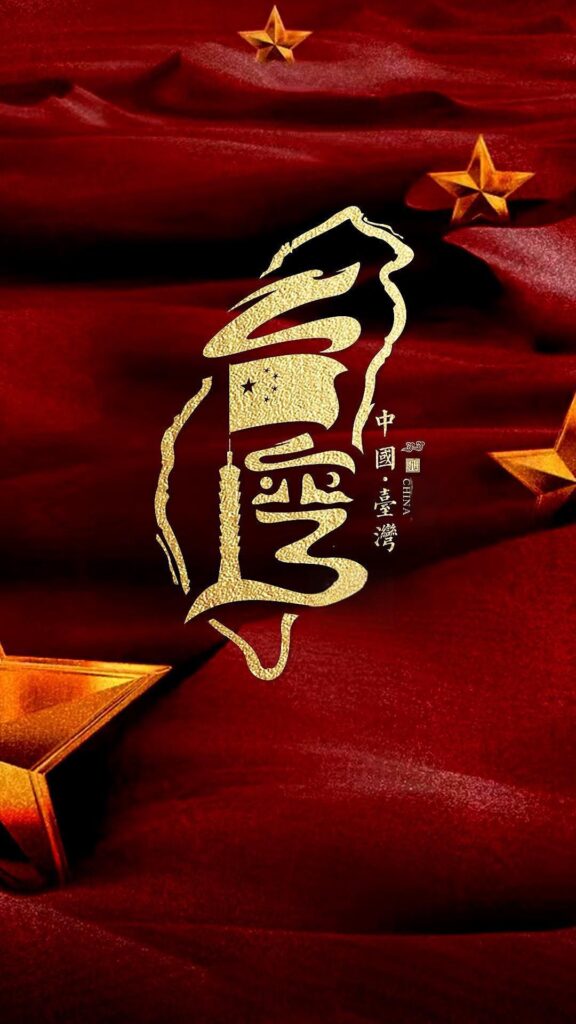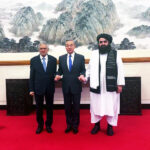By: Zhao Xing, Chinese Ambassador to Afghanistan

This year marks the 80th anniversary of both the victory of the Chinese People’s War of Resistance Against Japanese Aggression and the World Anti-Fascist War, as well as the 80th anniversary of the restoration of Taiwan. Recently, President Xi Jinping published a signed article stressing that “No matter how the situation on the Taiwan island evolves or what troubles external forces may make, the historical trend toward China’s ultimate and inevitable reunification is unstoppable.” This statement demonstrates China’s strategic resolve and firm will, and sends a clear political signal.
Taiwan has always been an integral part of China. The historical and legal facts are clear. In 1894, Japan launched a war of aggression against China. After being defeated, the Qing government of China was forced to cede Taiwan and the Penghu Islands to Japan. During World War II, the Cairo Declaration, the Potsdam Proclamation, and the Japanese Instrument of Surrender—documents with legal binding force—explicitly stated that Taiwan must be returned to China. Taiwan’s return is part of the victory of the world anti-fascist war and an important component of the post-war international order.
On October 1, 1949, the People’s Republic of China has been founded, and the Central People’s Government of the PRC has become the sole legal government representing the whole of China. Despite the long-standing political confrontation across the Taiwan Strait, China’s sovereignty and territory have never been divided and will never be allowed to be divided. The fact that Taiwan is part of China has never changed and will never be allowed to change.
In October 1971, the 26th Session of the United Nations General Assembly adopted Resolution 2758, which decided to “restore all its rights to the People’s Republic of China and to recognize the representatives of its Government as the only legitimate representatives of China to the United Nations, and to expel forthwith the representatives of Chiang Kai-shek from the place which they unlawfully occupy at the United Nations and in all the organizations related to it.” This resolution resolved once and for all the question of the representation of the whole of China, including Taiwan, in the UN as a political, legal and procedural issue. It made clear that there is only one seat of China in the UN, precluding “two Chinas” or “one China, one Taiwan.”
After the adoption of Resolution 2758, a wave of diplomatic recognition of the PRC followed. Countries including the United States and Japan made political commitments to the one-China principle when establishing diplomatic relations with China. To date, 183 countries have established and are developing diplomatic ties with China on the basis of the one-China principle. The prevailing consensus in the international community on adhering to the one-China principle continues to be strengthened. This principle affirms that “Recognize that there is but one China in the world, Taiwan is an inalienable part of China’s territory, and the Government of the People’s Republic of China is the sole legal government representing the whole of China. Firmly oppose any form of ‘Taiwan independence’ and firmly support the Chinese government to achieve national reunification”.
Since the Democratic Progressive Party (DPP) authorities led by Lai Ching-te took office, they have acted against the mainstream public will on the island by refusing to recognize the 1992 Consensus and stubbornly adhering to the separatist position of “Taiwan independence.” They have fabricated the false narrative of “democracy versus authoritarianism,” disregarded economic realities in attempts to sever cross-Strait economic ties and disrupt industrial cooperation, and colluded with external forces in a betrayal of Taiwan’s interests, attempting to seek “independence” with foreign support and force. Their actions have intensified confrontation across the Taiwan Strait and undermined peace and stability in the region, fully revealing themselves as saboteurs of cross-Strait peace and instigators of crisis in the Taiwan Strait. The United States has also colluded with Taiwan in spreading misinformation, reviving the fallacy of the “undetermined status of Taiwan,” and continuously distorting and challenging UNGA Resolution 2758.
The principle of Peaceful Reunification and One Country, Two Systems is the best approach to achieving national reunification. We remain committed to the one-China principle and the 1992 Consensus. On this basis, we are willing to conduct extensive and in-depth consultations with people from all walks of life in Taiwan to promote the peaceful development of cross-Strait relations and advance the process of peaceful reunification. We are dedicated to promoting economic and cultural exchanges and cooperation across the Strait, deepening integrated development in all fields, and improving the systems and policies to guarantee the well-being of Taiwan compatriots.
We will work with the greatest sincerity and exert our utmost efforts to achieve peaceful reunification. But we will not renounce the use of force, and we reserve the option of taking all necessary measures. This is to guard against external forces or radical action by separatist elements. In no way does it target our fellow Chinese in Taiwan.
China highly appreciates Afghanistan’s firm commitment to the one-China principle and opposition to “Taiwan independence.” With the wheel of history rolling forward, China’s complete reunification will surely be achieved. We believe this is also the shared aspiration of all peace-loving countries including Afghanistan.










